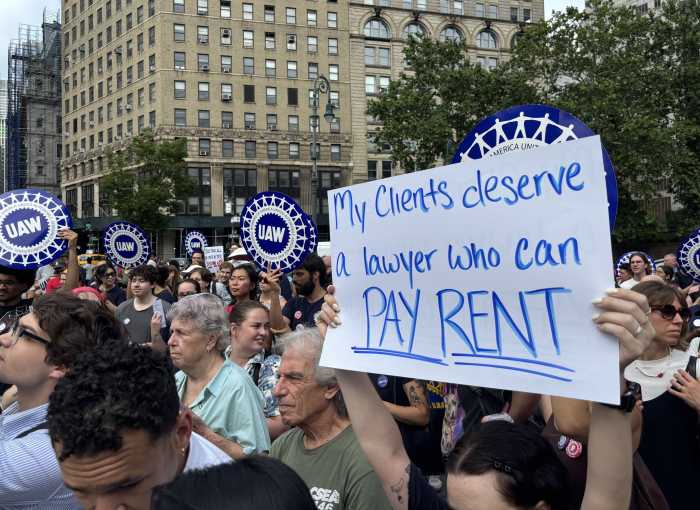BY WINNIE McCROY | According to a report given to Chelsea Now by Jamestown Properties, the proposed expansion of Chelsea Market will increase New York City’s economic output by $1.35 billion annually — and create or maintain more than 3,600 long-term jobs. The project seeks to add about 330,000 square feet of commercial development atop the Chelsea Market complex, split between a 150-room business hotel and office space for media and technology companies.
“New York City has become a hub for technology and media firms and this transformation is driving the demand for our expansion” said Michael Phillips, Managing Director of Jamestown Properties. “It is important for the city to continue to remain a magnet for these industries because they are creating the jobs of tomorrow. The expansion of Chelsea Market would allow it to continue its role as an incubator to small business and startups while helping solidify Chelsea as the heart of the city’s tech industry.”
The study — prepared by economic analysis and reporting firm Appleseed — evaluates the impact that proposed construction would have on the neighborhood and the city, including the influx of additional tenants and tourists to the area, and the tax revenue generated by the project.
Appleseed estimates that the project will create 1,200 construction jobs resulting in more than $300 million in income. They also estimate that more than 1,200 people will be employed in the new office space and hotel (180 hotel employees and 1,026 office workers).
Internet publishing and broadcasting, Internet service providers and data services will comprise about 60 percent of these new office jobs, with cable TV programming, music publishing, advertising and marketing making up the bulk of the remainder. The study indicates that these high-paying industries will help create additional jobs elsewhere in the city, through the multiplier effect.
“Internet publishing and cable television programming have a high percentage of total revenues that flow through to other New York City businesses,” said Hugh O’Neill, President of Appleseed. “The new office space created by the Chelsea Market expansion will help accommodate the continued growth of these industries, which are among the highest-paid and most productive in New York City, making them vital to the future of the city’s economy.”
Looking at the tax impact of the expansion, Appleseed estimates that during construction, the project will directly generate income, sales and business taxes of about $6.6 million state/$4.4 million city.
When completed, they estimate that the property will generate income, sales, business, property and hotel taxes of $9.8 million to the state and $13.8 million to the city. These tax benefits will increase exponentially when factoring in a 95 percent occupancy for the hotel and office space — plus an additional $33 million in taxes via the multiplier effect.
“Taken together, we thus estimate that hotel, office building and tenant company operations will directly and indirectly generate nearly $57.5 million in city and state tax revenues,” reads the report.
Before construction can begin on the proposed expansion, Jamestown Properties must secure a zoning variance incorporating Chelsea Market into the Special West Chelsea District created in 2005 — as well as a zoning text amendment to allow an increase in density from 5.0 FAR to 7.5 FAR. The city zoning glossary defines FAR as “floor area ratio,” the ratio of total building floor area to the area of its zoning lot. Each zoning district has a FAR which, when multiplied by the lot area, produces the maximum amount of floor area allowable on the lot.
These zoning changes must first be approved through the Uniform Land Use Review Procedure. Jamestown has said that the zoning changes will conform to requirements that restrict development to the avenues and preserve mid-block views, ensuring that no development happens over the historic portions of the market.




































